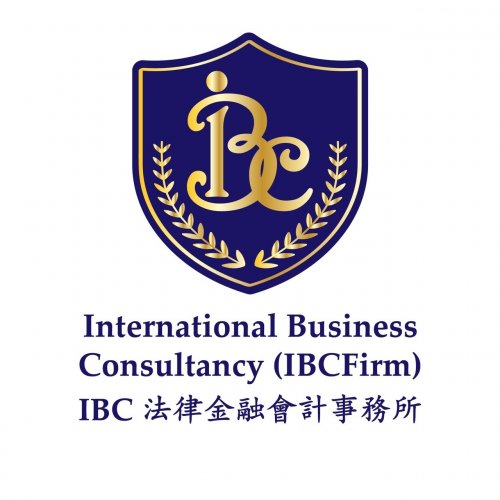Best Debt Capital Markets Lawyers in Bangkok
Share your needs with us, get contacted by law firms.
Free. Takes 2 min.
List of the best lawyers in Bangkok, Thailand
Legal guides written by SIAM LEGAL INTERNATIONAL:
- Defamation Laws in Thailand: Criminal Charges and Civil Suits
- The State of Thailand’s Long-Term Resident (LTR) Visa Program in 2025
- The Penalties Of Not Filing Your Income Tax Return As A Foreigner In Thailand
About Debt Capital Markets Law in Bangkok, Thailand
Debt Capital Markets (DCM) play a vital role in the Thai financial system and economy, especially in a thriving city like Bangkok. DCM involves the issuance, trading, and regulation of debt securities such as corporate bonds, debentures, and government bonds. These instruments allow companies, municipalities, and government agencies to raise funds from investors. In Bangkok, the DCM is overseen by a combination of local regulators, stock exchanges, and government authorities. Transactions in this sector often involve complex legal and regulatory requirements. Whether you are seeking to raise capital, invest in securities, or ensure regulatory compliance, understanding the legal framework is essential for anyone involved in the DCM environment in Bangkok.
Why You May Need a Lawyer
Engaging in the Debt Capital Markets sector in Bangkok may require professional legal advice for various reasons. Here are some common scenarios where a lawyer can assist:
- Structuring a debt issuance, such as bonds or notes, for a corporation or government entity
- Ensuring regulatory compliance with Thai securities laws, including disclosure and reporting obligations
- Negotiating terms with underwriters, agents, or institutional investors
- Assisting with cross-border transactions or dual listings in other jurisdictions
- Reviewing and drafting prospectuses and offering documents to ensure accuracy and legality
- Advising on risk management, security interests, and collateral arrangements
- Representing clients in investigations or enforcement actions brought by authorities
- Assisting with the listing or delisting of debt instruments on the Stock Exchange of Thailand (SET)
- Guiding on insolvency, restructuring, or bondholder meetings in cases of default
- Handling complex matters involving derivatives or structured products associated with DCM
Due to the technicalities and regulatory requirements surrounding DCM transactions, early engagement of a legal expert can prevent costly errors and ensure you meet your objectives securely and efficiently.
Local Laws Overview
Debt Capital Markets in Bangkok operate under a legal framework largely shaped by Thai law and regulatory bodies. The primary pieces of legislation and regulatory authorities include:
- Securities and Exchange Act B.E. 2535 (1992) and amendments: Governs the issuance and trading of debt securities, requiring issuers to register with the Securities and Exchange Commission (SEC) and comply with disclosure obligations.
- Securities and Exchange Commission (SEC) of Thailand: The main regulator responsible for supervising public offerings, disclosures, and market conduct for both issuers and intermediaries.
- Public Limited Companies Act B.E. 2535 (1992): Regulates companies seeking to issue bonds and other debt instruments.
- Stock Exchange of Thailand (SET) Rules: SET sets additional requirements for listing debt securities, ongoing obligations, and reporting.
- Trust for Transactions in Capital Market Act: Outlines how asset-backed or secured debt issuances are structured, often involving the use of trustees to protect investor interests.
- Cross-border rules and tax regulations: For Thai and foreign entities, these affect the structuring, documentation, and settlement of debt instruments.
The legal environment is highly regulated to protect investors and maintain market stability. Transactions involving public offerings must adhere to prospectus requirements, ongoing disclosures, and capital market conduct codes. Non-compliance can lead to enforcement actions, financial penalties, or trading suspensions.
Frequently Asked Questions
What is a debt security in the context of Thailand's capital markets?
A debt security is a financial instrument representing a loan made by an investor to a borrower, typically a corporation or government, with terms for repayment of principal and interest. Common examples include bonds, debentures, and notes.
Do I need SEC approval to issue bonds in Thailand?
Yes, generally, a public offering of bonds requires SEC approval and registration of a prospectus, though some exemptions may apply for private placements or offers to institutional investors.
What ongoing obligations do issuers of debt securities have after issuance?
Issuers must comply with ongoing disclosure and reporting requirements, including financial statements, material developments, and notifications to the SEC and SET, as applicable.
Can foreign companies issue bonds in Thailand?
Foreign companies can issue bonds in Thailand subject to specific regulations, including approval from the SEC and, in some cases, the Bank of Thailand, with restrictions on currency and investor eligibility.
What are the risks of participating in the Debt Capital Markets?
Risks include credit risk (default by the issuer), market risk (changes in interest rates or prices), operational risk, and regulatory risk. Proper legal guidance can help mitigate these risks.
Are there restrictions on who can invest in debt instruments in Thailand?
Yes. Certain debt instruments may be limited to institutional or high-net-worth investors, while others are open to the public, depending on the SEC's classification and the nature of the issuance.
How are defaults and restructuring handled in the Thai legal system?
Default situations may require negotiations with bondholders, convening bondholder meetings, and potentially restructuring the debt. The Thai courts and the Bankruptcy Act provide avenues for enforcement and insolvency proceedings.
What is a program offering in the context of debt securities?
A program offering refers to the approval and registration of a debt issuance framework that allows an issuer to offer multiple tranches of debt securities over time under the same program, subject to ongoing regulatory compliance.
Can debt securities be listed on the Stock Exchange of Thailand?
Yes. Debt securities can be listed for trading on the SET or the Thai Bond Market Association (ThaiBMA), provided they meet the eligibility and disclosure requirements.
What documents are required for the issuance of bonds in Thailand?
Typical documents include the prospectus, trust deed, subscription agreement, underwriting agreement, and any required financial or legal opinions. The exact documents depend on the structure and participants involved.
Additional Resources
For further information and assistance regarding Debt Capital Markets in Bangkok, consider reaching out to the following:
- Securities and Exchange Commission (SEC) of Thailand: The main regulatory body providing up-to-date regulations, investor protection information, and guidance for issuers
- Stock Exchange of Thailand (SET): Offers resources for bond listings, market data, and issuer requirements
- Thai Bond Market Association (ThaiBMA): Provides market information, regulations, and support for both issuers and investors in the bond market
- Bank of Thailand (BOT): Regulates certain cross-border transactions and offers guidance on financial sector rules
- Department of Business Development, Ministry of Commerce: Responsible for company registrations and corporate filings, relevant for bond issuers
- Reputable law firms and financial advisors specializing in Debt Capital Markets
Next Steps
If you are considering issuing, investing in, or managing debt instruments in Bangkok's capital markets, the next steps are:
- Assess your objectives and understand the scope of your intended transaction or investment
- Engage a qualified legal professional experienced in Debt Capital Markets in Thailand
- Prepare necessary documentation with legal oversight to ensure regulatory compliance
- Work closely with your legal advisor to navigate approval processes, disclosure requirements, and market entry
- Stay updated on regulatory changes and ongoing compliance post-issuance or investment
- Utilize resources provided by regulatory authorities and industry associations
Early legal involvement can clarify complex issues, prevent regulatory pitfalls, and protect your interests in the dynamic environment of Debt Capital Markets. Seek advice tailored to your specific situation before committing significant resources or entering into binding agreements.
Lawzana helps you find the best lawyers and law firms in Bangkok through a curated and pre-screened list of qualified legal professionals. Our platform offers rankings and detailed profiles of attorneys and law firms, allowing you to compare based on practice areas, including Debt Capital Markets, experience, and client feedback.
Each profile includes a description of the firm's areas of practice, client reviews, team members and partners, year of establishment, spoken languages, office locations, contact information, social media presence, and any published articles or resources. Most firms on our platform speak English and are experienced in both local and international legal matters.
Get a quote from top-rated law firms in Bangkok, Thailand — quickly, securely, and without unnecessary hassle.
Disclaimer:
The information provided on this page is for general informational purposes only and does not constitute legal advice. While we strive to ensure the accuracy and relevance of the content, legal information may change over time, and interpretations of the law can vary. You should always consult with a qualified legal professional for advice specific to your situation.
We disclaim all liability for actions taken or not taken based on the content of this page. If you believe any information is incorrect or outdated, please contact us, and we will review and update it where appropriate.















